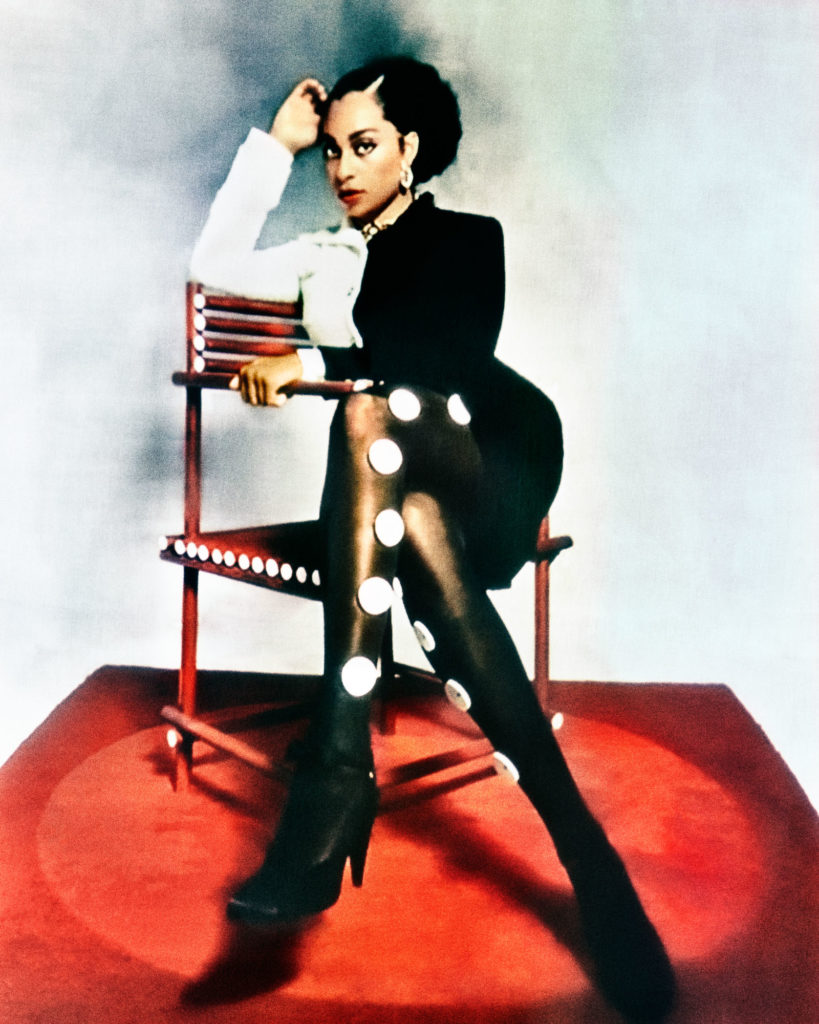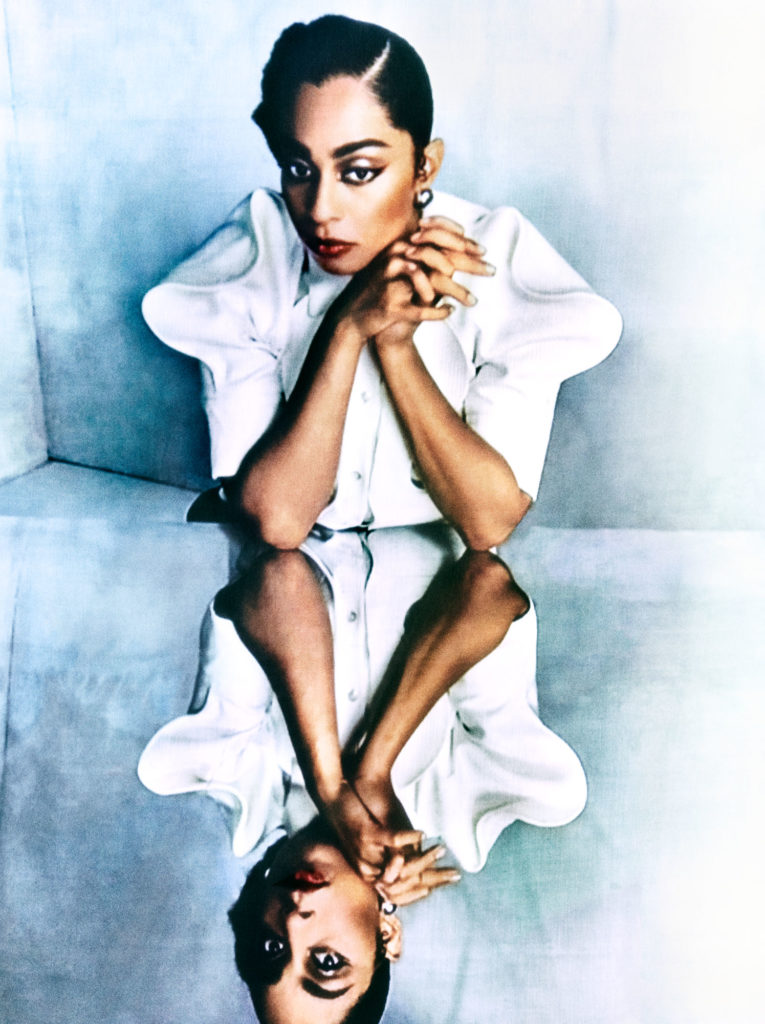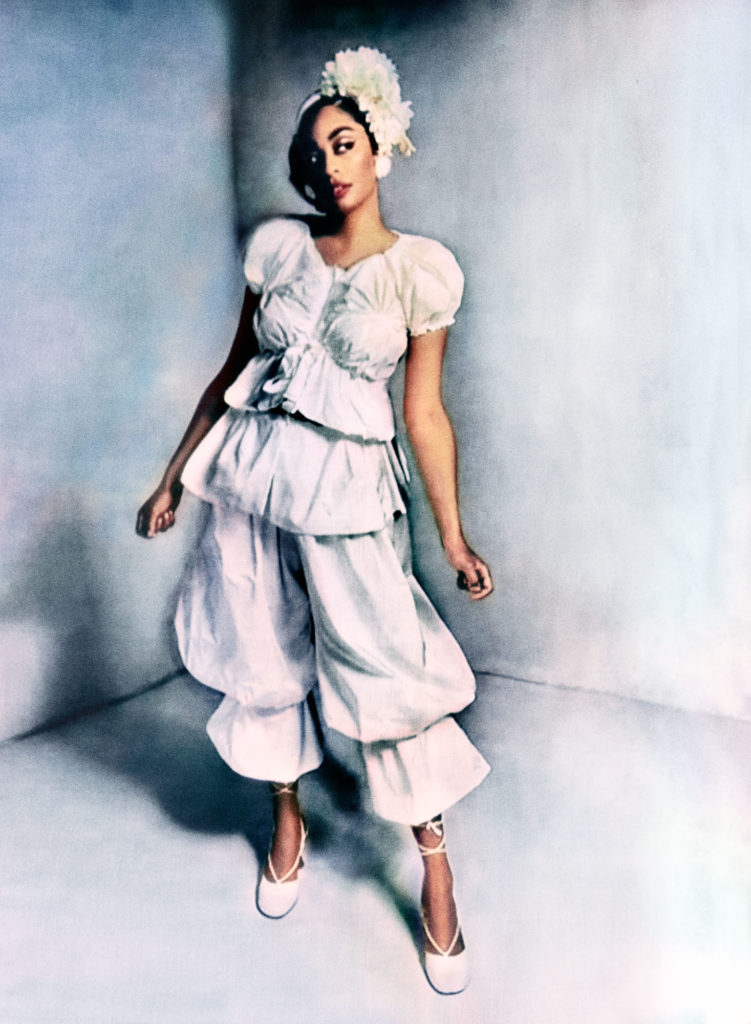Celeste is shrugging off outdated notions of love
Words: Dylan Murphy
Words: Dylan Murphy
February is Love Month on District and we’re exploring the highs and lows of relationships and discussing love in its many forms.
Los Angeles-born, Brighton-raised songstress Celeste writes intimate songs that speak to the complexity of love. Ahead of the release of her number one album Not Your Muse she spoke to Dylan Murphy about the societal expectations of women in relationships and how she accesses honesty no matter how uncomfortable it may be.
For as long as they have existed, cars have been a lynchpin in modern songwriting. In hip hop, they’ve been weaponised as a status symbol with Cadillacs soundtracking the hydraulic-loving gangsta rap of 90s and rolling in a Range Rover becoming the go-to flex for city-dwelling acts. Whereas, equally as common, is the backseat as a safe space for honest conversations. Think about the security and solace that cars brought Gary Numan and the heartbreak of Frank Ocean’s ‘White Ferrari’.
Celeste subscribes to the latter and her music is informed from the days spent nestled in her grandfather’s car listening to the greats.
At the time of our conversation and though she doesn’t know it yet, Celeste is just days from a flurry of success. Her debut album Not your Muse is on the verge of grabbing the number one spot and her song ‘Hear My Voice’ from The Trial of The Chicago 7 is about to be shortlisted for the best original score at The Oscars and best original song at the Golden Globes. Speaking from the comfort of her London home, Celeste begins to detail her journey from the passenger side to podiums.
“My earliest memories of hearing music and beginning to understand it was definitely from my grandad. He had this cherry red Jaguar at the time. It was a 90s Jag, it was so cool and I remember how happy he was when he got it and he went everywhere with it”, she recalls warmly.
“He had greyhounds he used to race with a couple of his friends and every weekend we would go out to a countryside space and pick up the dogs and take them on a really long walk. Each way, we would listen to some of his CDs. The ones I remember the most were Aretha Franklin and then Nina Simone.”

Coasting in the passenger seat, with the windows rolled up tight can often feel like a purgatory of sorts. As a kid, you were free from the tired-eyed morning routine but not yet gripped by the monotony of school and when you became old enough to drive, hitting the roads in a three-door brought a sense of freedom from the trappings of your parent’s gaff.
While the sense of intimacy that pervades Celeste’s music is informed by deep conversations in the backseat, the vulnerability is indebted to the no-fucks-given attitude of the south coast’s DIY scene. Encouraging its inhabitants to embrace their imperfections, that creative environment was a vital thread in Celeste’s ongoing education.
“In Brighton, we were surrounded by so many people who were just exploring music and gaining an understanding of themselves and following their intuition. There are a lot of musicians in Brighton and the best thing was hearing them in their rawest form and it’s not about being the best players. Where I grew up it’s not about being the best at playing the guitar or being the best at playing the piano. It’s just about being willing to give yourself to something.”
This ethos bled into Celeste’s compelling debut. Whilst neither a seasoned veteran or someone that had even worked on a lot of other people’s albums, Celeste drew from what she knew – raw, live performances.
“I didn’t really know how to structure an album because I’d never made one before”, Celeste admits.
“The way I looked at the structure of an album was the way I look at the structure of a live show because that was something I’d done a lot and knew quite well at the point of putting it together. That’s how I start my live show, I like to ease it in with a moody and atmospheric moment and bring it back down to that at the end… That’s why it felt quite right to ease it in with a quiet moment.”
“It’s just about being willing to give yourself to something.”
Celeste

Though there’s a sense of grandeur presented by the at times theatrical production that harks back to golden age soul music and by the very virtue of having a major label debut, Celeste maintains a sense of intimacy throughout without compromising the enormity of the record.
It’s been an approach Celeste has been intent on retaining since hearing Aretha Franklin, Nina Simone and a host of other acts in the passenger side of her grandad’s Jag. She reaffirmed this notion a year ago when she was voted the act ready to take the year by storm by a host of industry experts. Celeste received the BBC Sound Of 2020 award joining previous alumni Adele, 50 Cent and Sigrid.
We all know what happened next, but before the world started falling apart Celeste maintained her commitment to the virtues that sparked something within her as a child. Speaking on BBC Breakfast about the influence of Nina Simone, Billie Holiday and Ella Fitzgerald she said, “Something that’s always appealed to me… is that they always delivered a raw emotion, you understand what they meant even if you didn’t understand what they were saying”.

This intuitive style of songwriting is present right from the off on Not Your Muse and the London-based songstress breaks down to me how she channels a complicated web of experiences into a highly intuitive opener in ‘Ideal Woman’.
“I think you just have to follow your gut. That is the thing telling you how to do it. So you have to listen to that. To me that means listening to how you feel and to be in touch with that you have to be as honest with people and how you live your life in order to access that.”
“To access that place of finding honesty you basically have to be like that in every part of your life even if it is uncomfortable for yourself or people around you at points”, she explains.
“It [‘Ideal Woman’] is probably the song closest to my speaking voice, how I would actually speak in a conversation with a friend about something personal. I wanted to open up to the listener in that way from the get-go as an introduction to this is now everybody else’s as much as it is mine.”
Not Your Muse is not as much a linear recollection of her romantic experiences in the order they happened as it is a rich tapestry of interconnected and often indistinguishable memories. Celeste admits that this makes it a little easier to delve into emotions of love that are often held so preciously.
“It’s definitely from a place of not wanting to conform to a societal expectation of what I should be as a woman and also what I should be as a woman in relation to a man”
Celeste
Though undoubtedly providing the Brighton-raised singer a sense of catharsis, the honesty littered throughout also challenges established stereotypes and expectations that Celeste has grown tired of. Most poignantly on the opener ‘Ideal Woman’.
“It’s definitely from a place of not wanting to conform to a societal expectation of what I should be as a woman and also what I should be as a woman in relation to a man”, she explains.
“It came as a response to feeling jilted by men and boys I came in contact with in a romantic way from the age of 16 – 23 and then finding my power within those things. By recognising that to be myself is actually the most valuable thing rather than trying to show a version of myself to prevent the real person inside of me being hurt by those people.
Though the safety of cars may have provided an early setting for Celeste to explore the power of music and share stories, the tables have turned and she finds herself speaking to people on their long drives.
“I’m talking about my vulnerabilities and insecurities. Even by listing those there was a healing in admitting that out loud. Knowing one day people might hear that.”
Not Your Muse is out now.

